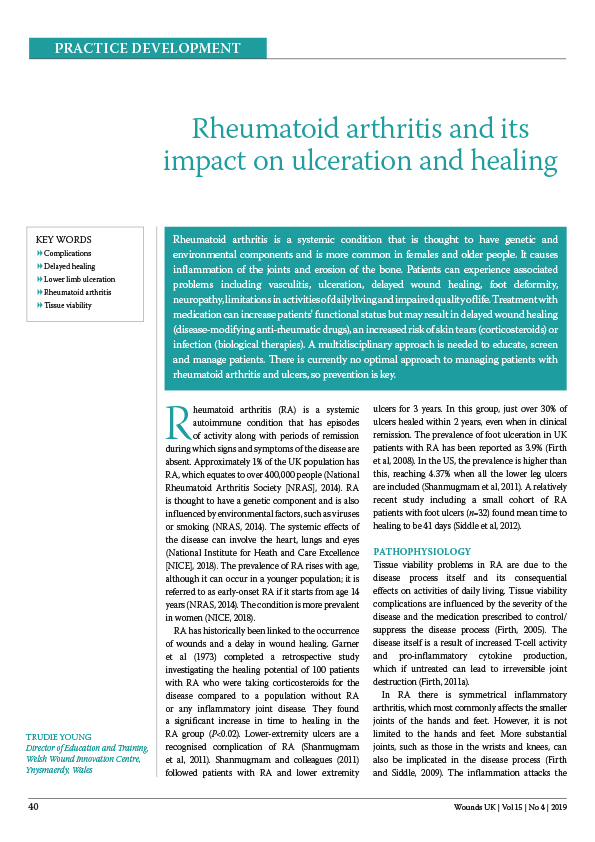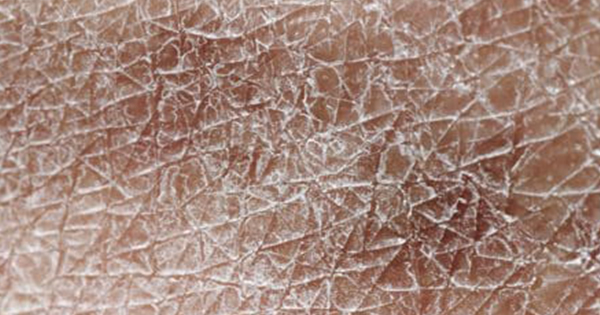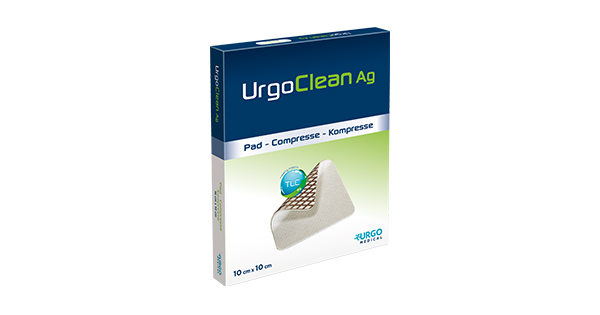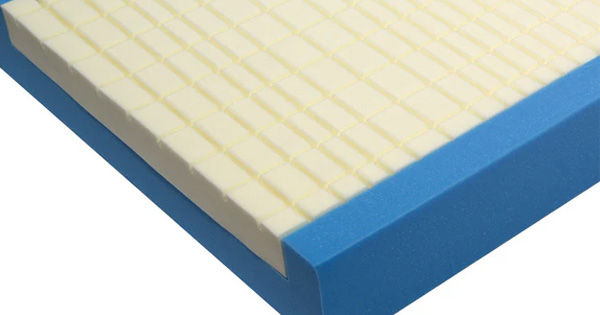Rheumatoid arthritis is a systemic condition that is thought to have genetic and environmental components and is more common in females and older people. It causes inflammation of the joints and erosion of the bone. Patients can experience associated problems including vasculitis, ulceration, delayed wound healing, foot deformity, neuropathy, limitations in activities of daily living and impaired quality of life. Treatment with medication can increase patients’ functional status but may result in delayed wound healing (disease-modifying anti-rheumatic drugs), an increased risk of skin tears (corticosteroids) or infection (biological therapies). A multidisciplinary approach is needed to educate, screen and manage patients. There is currently no optimal approach to managing patients with rheumatoid arthritis and ulcers, so prevention is key.







